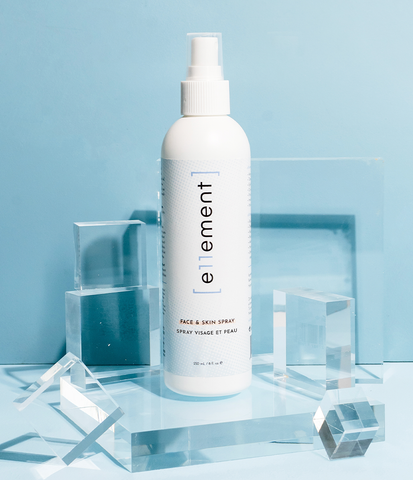Hypochlorous acid (HOCl) is a naturally occurring substance in the human body, produced by white blood cells as part of the immune response. It has antimicrobial and anti-inflammatory properties, making it beneficial for various skincare applications. HOCl is gentle on the skin and can help reduce redness, irritation, and inflammation.

Benefits of Using Hypochlorous Acid After Sunscreen
Using hypochlorous acid after applying sunscreen can provide several benefits:
Enhances Skin Barrier Function
Hypochlorous acid helps to strengthen the skin's natural barrier, which can be compromised by environmental stressors and UV exposure. By reinforcing the skin barrier, it aids in maintaining moisture and protecting against pollutants.
Reduces Inflammation and Redness
Exposure to the sun can cause inflammation and redness, even when using sunscreen. Hypochlorous acid spray can help soothe these symptoms, providing a calming effect on the skin and promoting faster recovery.
Prevents Breakouts
Sunscreens, especially those with heavy formulations, can sometimes clog pores and lead to breakouts. Hypochlorous acid has antimicrobial properties that can help prevent the growth of bacteria, reducing the risk of acne and other skin issues.
How to Use Hypochlorous Acid After Sunscreen
Application Steps
- Cleanse Your Face: Start with a clean face to remove any dirt, oil, or makeup. Use a gentle cleanser suitable for your skin type.
- Apply Sunscreen: Apply a broad-spectrum sunscreen with an appropriate SPF for your skin. Ensure even coverage over all exposed areas.
- Spray Hypochlorous Acid: Once the sunscreen has been absorbed, lightly spray hypochlorous acid over your face. You can also use a cotton pad to apply it gently.
- Moisturize: Finish your routine with a moisturizer to lock in hydration and keep your skin smooth.
Precautions When Using Hypochlorous Acid After Sunscreen
While hypochlorous acid is generally safe for most skin types, it's important to follow certain precautions:
Patch Test
Before incorporating hypochlorous acid spray into your routine, perform a patch test on a small area of your skin to check for any adverse reactions.
Avoid Mixing with Certain Ingredients
Avoid using hypochlorous acid with products containing strong acids or retinoids, as this can cause irritation.
Consult a Dermatologist
If you have sensitive skin or any existing skin conditions, consult a dermatologist before using hypochlorous acid to ensure it's suitable for your skin.
Conclusion
Hypochlorous acid can be a beneficial addition to your skincare routine, especially after applying sunscreen. Its soothing, anti-inflammatory, and antimicrobial properties help enhance skin health and protection. By following the correct application steps and precautions, you can effectively incorporate hypochlorous acid spray into your daily regimen for optimal results.























